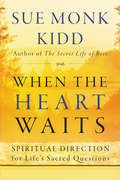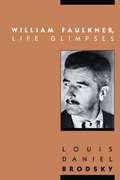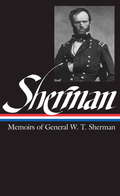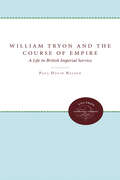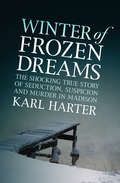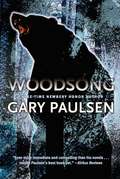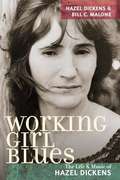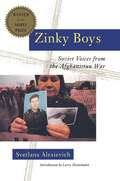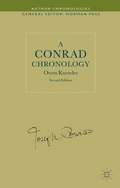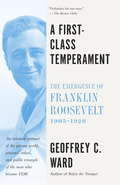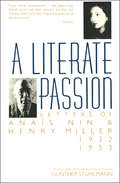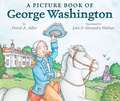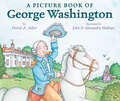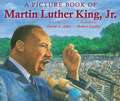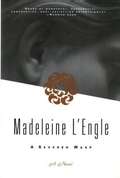- Table View
- List View
What I Saw At The Revolution: A Political Life in the Reagan Era
by Peggy NoonanA special assistant to the president during the height of the Reagan era, Peggy Noonan worked with him, and with then vice-president Bush, on some of their most famous and memorable speeches. Now, in her thoroughly engaging and unanimously acclaimed memoir, Noonan shows us the world behind the words. Her sharp and vivid portraits of Ronald and Nancy Reagan, George Bush, Donald Regan, and a host of Washington's movers and shakers are rendered in her inimitable, witty prose. And her priceless account of what it was like to be a speechwriter among bureaucrats, and a woman in the last bastion of male power, makes this a Washington memoir that breaks the mold--as spirited, sensitive and thoughtful as Peggy Noonan herself.
What We Had: A Memoir
by James ChaceIn an affectionate memoir of growing up amid genteel proverty, Chace describes the events, nostalgia, and obsessions that shaped his childhood, his eccentric relatives, his Harvard education, his stint as a CIA informat, and his later career
When the Heart Waits: Spiritual Direction for Life's Sacred Questions (Plus Ser.)
by Sue Monk KiddThe bestselling author's inspiring autobiographical account of personal pain, spiritual awakening, and divine grace."Inspiring. Sue Monk Kidd is a direct literary descendant of Carson McCullers."--Baltimore Sun"Grounded in personal experience and bolstered with classic spiritual disciplines and Scripture, this book offers an alternative to fast-fix spirituality."--Bookstore Journal Blending her own experiences with an intimate grasp of spirituality, Sue Monk Kidd relates the passionate and moving tale of her spiritual crisis, when life seemed to have lost meaning and her longing for a hasty escape from the pain yielded to a discipline of "active waiting."
William Faulkner, Life Glimpses
by Louis Daniel BrodskyDuring thirty years of literary collecting, Louis Daniel Brodsky has acquired some of the most important source materials on the life and work of William Faulkner anywhere available. Indeed, the Brodsky Collection, now owned by Southeast Missouri State University, has been characterized by Robert Penn Warren as "stupendous. " In William Faulkner, Life Glimpses, Brodsky mines this storehouse of previously unpublished material, using interviews, letters, speeches, movie scripts, and notes to enrich our understanding of this well-known Southern writer. The result is a highly readable biography that is thematic and episodic rather than chronological in its organization. Building on specific documents in the collection, Brodsky opens new windows on the parallel development of Faulkner's literary career and personal life. New material on the early poems ''Elder Watson in Heaven" and "Pregnancy" gives insight into Faulkner's developing literary and personal aesthetics during the 1920s and 1930s. Faulkner's metamorphosis from self-doubting, isolated artist to confident public spokesman during the 1940s and 1950s forms the central core of the study. Through previously unavailable screenplays written for Warner Bros. during World War II and an interview with Faulkner's fellow screenwriter Albert I. "Buzz" Bezzerides, Brodsky charts the decline in Faulkner's literary output and his corresponding discovery of a public voice. He shows how Faulkner's astonishingly positive 1950 Nobel Prize acceptance speech was not a sudden about-face from the bleak outlook that had produced The Sound and the Fury. Rather, Faulkner's years in Hollywood showed him that words, even screenplays, could shape the way people think and react. Faulkner's lifelong quest for a "manly" role ended, Brodsky declares, when he took up the mantle of public spokesmanship. In the final chapter, a revealing interview with Faulkner's granddaughter, Victoria Fielden Johnson, paints an insider's portrait of life at the Faulkner home, Rowan Oak. A copy of Faulkner's recipe for curing pork, included in the appendix, emphasizes his longterm struggle to produce fine literature while supplying the everyday needs of a large family. These and other materials, previously unavailable to scholars and the reading public, will broaden and enrich our understanding of one of America's most celebrated writers.
William Mckinley: Twenty-fifth President of the United States
by David R. CollinsPresents the life of William McKinley, including his childhood, education, employment, and political career.
William Tecumseh Sherman: Memoirs of W. T. Sherman (The Library of America) (Library of America Civil War Memoirs Collection #2)
by William Tecumseh ShermanHailed as prophet of modern war and condemned as a harbinger of modern barbarism, William Tecumseh Sherman is the most controversial general of the American Civil War. "War is cruelty, and you cannot refine it," he wrote in fury to the Confederate mayor of Atlanta, and his memoir is filled with dozens of such wartime exchanges. With the propulsive energy and intelligence that marked his campaigns, Sherman describes striking incidents and anecdotes and collects dozens of his incisive and often outspoken wartime orders and reports. This complex self-portrait of an innovative and relentless American warrior provides firsthand accounts of the war's crucial events--Shiloh, Vicksburg, Chattanooga, the Atlanta campaign, the marches through Georgia and the Carolinas.
William Tryon and the Course of Empire: A Life in British Imperial Service
by Paul David NelsonWilliam Tryon's role in the affairs of British America during the last years of the empire, and his inability to stem the collapse of that empire, makes for a fascinating story. Royal governor of North Carolina from 1765 to 1771 and then of New York from 1771 to 1780, Tryon became a general in the British army attempting to quell the American rebellion. This biography covers his life in service to the Crown through the end of the American Revolution.Paul Nelson argues that Tryon was a talented colonial administrator and a successful, even popular, governor largely because he understood American thinking on such basic constitutional issues as taxation, finance, and trade policy. British home authorities failed to follow Tryon's sage counsel regarding the governance of the colonies, advice that might have forestalled the Revolution. In particular, Tryon, like Edmund Burke and others in Parliament, could not convince British ministers that Americans would never accept internal taxes imposed upon them by London.Once the war broke out and Tryon's role changed from governing to leading Loyalist American troops, he was an advocate of harsh, retributive warfare against his former charges. Nelson follows Tryon's military career, especially his debates with colleagues such as Sir Henry Clinton on the wisdom of hard-line versus conciliatory approach to the fighting. And after the war, Nelson shows, Tryon's connections with those unfortunate Americans who came out on the losing side of the great imperial struggle retained an important place in his life. An exciting drama in its own right, Tryon's story also serves to illuminate a number of issues important to historians of the Revolutionary War. Played out on two continents and in two important American colonies, amid the stirring events that resulted in the formation of the United States of America, Tryon's life is significant for understanding many aspects of politics and society in the Anglo-American world of the eighteenth century.Originally published in 1990.A UNC Press Enduring Edition -- UNC Press Enduring Editions use the latest in digital technology to make available again books from our distinguished backlist that were previously out of print. These editions are published unaltered from the original, and are presented in affordable paperback formats, bringing readers both historical and cultural value.
Winter of Frozen Dreams: The Shocking True Story of Seduction, Suspicion, and Murder in Madison
by Karl HarterThe true story of Barbara Hoffman is a tale of money, men, and the Madison, Wisconsin, massage parlor where a biochemistry major turned into a murderer. On a freezing Christmas morning, a distraught young man named Gerald Davies led Madison police to Tomahawk Ridge, where they found the body of Harold Berge, naked, bloody, and beaten. Davies insisted that he hadn&’t killed the man, but that he and his fiancée had simply buried the corpse in a snowbank. The investigation confirmed that the victim had died in the apartment of Barbara Hoffman—a young woman who had dropped out of the University of Wisconsin and had worked at Jan&’s Health Studio, a local massage parlor. She and Davies, whom she met at Jan&’s, had recently become engaged. The circumstances were suspicious already. But when the police discovered that Berge was Hoffman&’s ex-lover, that he had signed over his house and an insurance policy to her—and that Davies had also made her his beneficiary—they began to suspect that Davies might also be in danger . . . The police kept him under watch, but eventually had to stop surveillance. Soon after, Davies turned up dead in his bathtub, a Valium bottle nearby, in an apparent suicide. But, an accomplished student of chemistry, Hoffman knew how tricky it could be to detect cyanide poisoning. It would take a dedicated effort by detectives to sort out the truth about the highly intelligent masseuse, her work in the shadowy local sex trade, and the real circumstances that led two of her clients to their deaths. Winter of Frozen Dreams is the full story of the case that would become a sensational televised trial and inspire a film of the same name starring Thora Birch. It&’s a &“snappy read&” by an author with a &“talent for sleuthy description and psychological insight&” (Kirkus Reviews).
Wisdom Distilled from the Daily: Living the Rule of St. Benedict Today
by Joan D. ChittisterSister Joan Chittister presents the Benedictine lifestyle as a way to live a balanced life even outside the monastery. She provides insight into how the Rule of St. Benedict applies to the modern person's everyday lifestyle and decisions.
Woodsong
by Gary PaulsenGary Paulsen has had a life as exciting as fiction!Gary Paulsen, three-time Newbery Honor author, is no stranger to adventure. He has flown off the back of a dogsled and down a frozen waterfall to near disaster, and waited for a giant bear to seal his fate with one slap of a claw. He has led a team of sled dogs toward the Alaskan Mountain Range in an Iditarod -- the grueling, 1,180-mile dogsled race -- hallucinating from lack of sleep, but he determined to finish. Here, in vivid detail, Paulsen recounts several of the remarkable experiences that shaped his life and inspired his award-winning writing.
Working Girl Blues: The Life and Music of Hazel Dickens (Music in American Life)
by Bill C Malone Hazel DickensHazel Dickens is an Appalachian singer and songwriter known for her superb musicianship, feminist country songs, union anthems, and blue-collar laments. Growing up in a West Virginia coal mining community, she drew on the mountain music and repertoire of her family and neighbors when establishing her own vibrant and powerful vocal style that is a trademark in old-time, bluegrass, and traditional country circles. Working Girl Blues presents forty original songs that Hazel Dickens wrote about coal mining, labor issues, personal relationships, and her life and family in Appalachia. Conveying sensitivity, determination, and feistiness, Dickens comments on each of her songs, explaining how she came to write them and what they meant and continue to mean to her. Bill C. Malone's introduction traces Dickens's life, musical career, and development as a songwriter, and the book features forty-one illustrations and a detailed discography of her commercial recordings.
Yamamoto: The Man Who Planned Pearl Harbor
by Edwin P. HoytThe first major biography of the Japanese admiral who was the architect of the Pacific War and of the Pearl Harbor attack.
Zinky Boys: Soviet Voices From The Afghanistan War
by Svetlana AlexievichWinner of the Nobel Prize: “For her polyphonic writings, a monument to suffering and courage in our time.” ―Swedish Academy, Nobel Prize citation<P><P> From 1979 to 1989 a million Soviet troops engaged in a devastating war in Afghanistan that claimed 50,000 casualties―and the youth and humanity of many tens of thousands more. Creating controversy and outrage when it was first published in the USSR―it was called by reviewers there a “slanderous piece of fantasy” and part of a “hysterical chorus of malign attacks”―Zinky Boys presents the candid and affecting testimony of the officers and grunts, nurses and prostitutes, mothers, sons, and daughters who describe the war and its lasting effects. What emerges is a story that is shocking in its brutality and revelatory in its similarities to the American experience in Vietnam. The Soviet dead were shipped back in sealed zinc coffins (hence the term “Zinky Boys”), while the state denied the very existence of the conflict. Svetlana Alexievich brings us the truth of the Soviet-Afghan War: the beauty of the country and the savage Army bullying, the killing and the mutilation, the profusion of Western goods, the shame and shattered lives of returned veterans. Zinky Boys offers a unique, harrowing, and unforgettably powerful insight into the realities of war.<P><P> Translated by Larry Heinemann.
1999
by Richard M. Nixon(back of book) As America's elder statesman of foreign relations, former president Richard Nixon provides a blueprint for world peace in 1999: VICTORY WITHOUT WAR. Drawing on a lifetime of experience, Nixon outlines the key international problems Western leaders must face as this century of "war and wonder" comes to a close-- and explains how the United States can meet these challenges to make the twenty-first a century of real peace. "A FOREIGN POLICY TOUR DE FORCE-A CRISP COGENT, CAUTIONARY TALE ABOUT AMERICA'S DIRECTION IN A TOPSY-TURVY WORLD ....IN UNCOMMONLY SENSIBLE LANGUAGE, THE MAN WHO OPENED CHINA TO THE WEST, WHO FORGED DETENTE WITH THE RUSSIANS. AND WHO NEGOTIATED THE FIRST NUCLEAR DISARMAMENT TREATY DEMONSTRATES WHY HE HAS EARNED THE TITLE OF AMERICAN ELDER STATESMAN.... AT HIS MOST ELOQUENT, NIXON ARGUES FOR AN AMERICA THAT REMEMBERS ITS IDEOLOGICAL EDGE, AN AMERICA THAT WILLINGLY AND CREATIVELY ACCEPTS THE BURDEN OF WORLD LEADER. NEVER HAS NIXON BEEN MORE FASCINATING, MORE FORTHRIGHT, MORE PERSUASIVE IN HIS THINKING ABOUT OUR POLITICAL AND MORAL IMPERATIVES!' -- The Columbus Dispatch printed in USA.
A Conrad Chronology
by Owen KnowlesThis chronology is designed to provide a digest of Conrad's life as it develops from year to year. It is written as a series of diary or chronicle entries and thus caters for the reader who may wish to check a single fact. The main contents are supplemented by a Who's Who and indexes which provide easy access to a wider range of information.
A First Class Temperament: The Emergence of Franklin Roosevelt, 1905-1928
by Geoffrey C. WardIn this classic of American biography, based upon thousands of original documents, many never previously published, the prize-winning historian Geoffrey C. Ward tells the dramatic story of Franklin Roosevelt's unlikely rise from cloistered youth to the brink of the presidency with a richness of detail and vivid sense of time, place, and personality usually found only in fiction.<P> In these pages, FDR comes alive as a fond but absent father and an often unfeeling husband--the story of Eleanor Roosevelt's struggle to build a life independent of him is chronicled in full-as well as a charming but pampered patrician trying to find his way in the sweaty world of everyday politics and all-too willing willing to abandon allies and jettison principle if he thinks it will help him move up the political ladder. But somehow he also finds within himself the courage and resourcefulness to come back from a paralysis that would have crushed a less resilient man and then go on to meet and master the two gravest crises of his time.<P> This is a sequel to Before the Trumpet: Young Franklin Roosevelt, 1882-1905
A Gift of Hope: The Tony Melendez Story
by Mel White Tony MelendezFrom the Publisher: The inspiring story of a young thalidomide victim and talented musician who has gained international recognition. Wonderful reading for anyone--especially those facing seemingly insurmountable difficulties. ... This is a beautifully, and positively, written autobiography. Melendez neither downplays his and his family's struggles resulting from his lack of arms, nor does he whine about them. Writing about his father, "Still, he knew that only in America would he find the kind of medical treatment I needed, so he put his own dreams aside and began to dream for me. He was young, strong, and determined to provide for each of us-but especially, I believe, for me. Imagine his growing frustration as he tried to support us on the minimum wage jobs that he could find. And there was no extra time or money to train in another field. [In Nicaragua, he was educated and accomplished in the fields of agriculture and animal husbandry.] Instead, he found himself in a huge pool of cheap labor as more and more unskilled young people migrated to America."
A Literate Passion: Letters of Anaïs Nin & Henry Miller: 1932–1953
by Henry Miller Anaïs NinA &“lyrical, impassioned&” document of the intimate relationship between the two authors that was first disclosed in Henry and June (Booklist). This exchange of letters between the two controversial writers—Anaïs Nin, renowned for her candid and personal diaries, and Henry Miller, author of Tropic of Cancer—paints a portrait of more than two decades in their complex relationship as it moves through periods of passion, friendship, estrangement, and reconciliation. &“The letters may disturb some with their intimacy, but they will impress others with their fragrant expression of devotion to art.&” —Booklist &“A portrait of Miller and Nin more rounded than any previously provided by critics, friends, and biographers.&” —Chicago Tribune Edited and with an introduction by Gunther Stuhlmann
A Picture Book of George Washington
by David A. AdlerA simple presentation of George Washington's character and the major events of his life.
A Picture Book of George Washington (Picture Book Biography)
by David A. AdlerThe life and legacy of our nation's first president, also known as commander of the Continental Army, husband to Martha, and an avid farmer and equestrian. Over two hundred years after his death, George Washington remains one of the most studied figures in American history. This clear and concise picture book biography covers the important facts and historical background, complemented by charming illustrations. The text details Washington's early life as well as the Revolutionary War and his impressive career as leader of the newly formed United States. Young readers will love learning more about the man who was "first in war, first in peace, and first in the hearts of his countrymen." Back matter features a timeline. For almost thirty years, David Adler&’s Picture Book Biography series has profiled famous people who changed the world. Colorful, kid-friendly illustrations combine with Adler&’s &“expert mixtures of facts and personality&” (Booklist) to introduce young readers to history through compelling biographies of presidents, heroes, inventors, explorers, and adventurers. These books are ideal for first and second graders interested in history, or who need reliable sources for school book reports.
A Picture Book of Martin Luther King, Jr
by David A. AdlerA brief biography of the Baptist minister and civil rights leader whose philosophy and practice of nonviolent civil disobedience helped American blacks win many battles for equal rights.
A Severed Wasp (Vigneras #3)
by Madeleine L'EngleFamed concert pianist Katherine Vigneras returns home to New York City for her retirement and hopes to enjoy the simple pleasures of living and a respite from the celebrity's life she once enjoyed. Unhappily, other people's problems intrude and she begins to function as an adviser, which stirs up forgotten memories.
A Woman Named Jackie: An Intimate Biography Of Jacqueline Bouvier Kennedy Onassis
by C. David HeymannBased on interviews with over 600 people and access to CIA and FBI files, this is a biography of former first lady, Jacqueline Kennedy Onassis.

